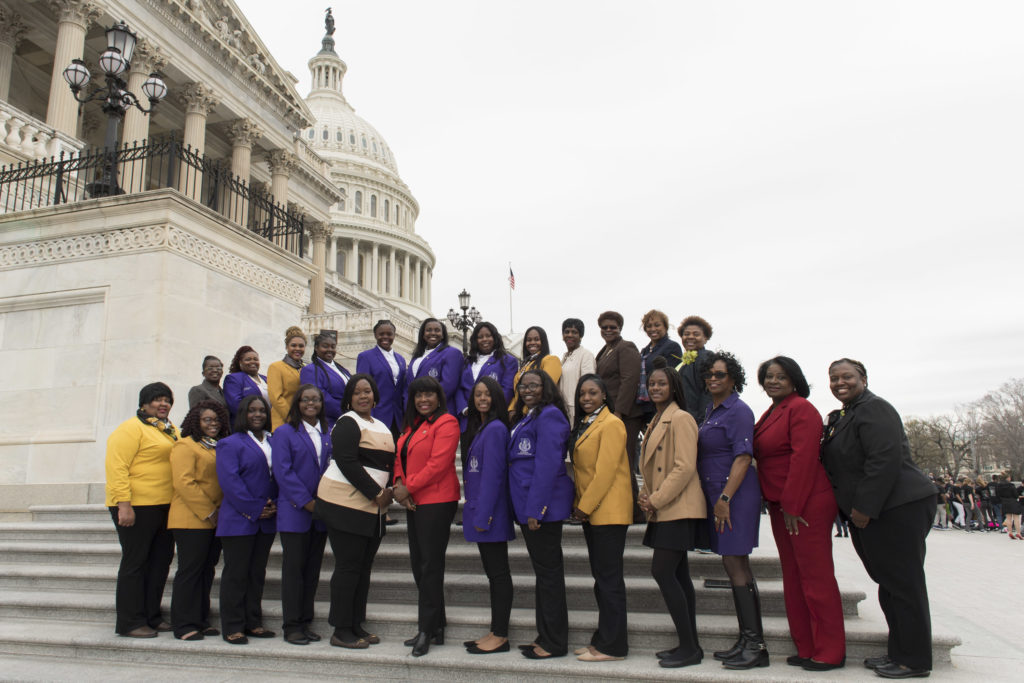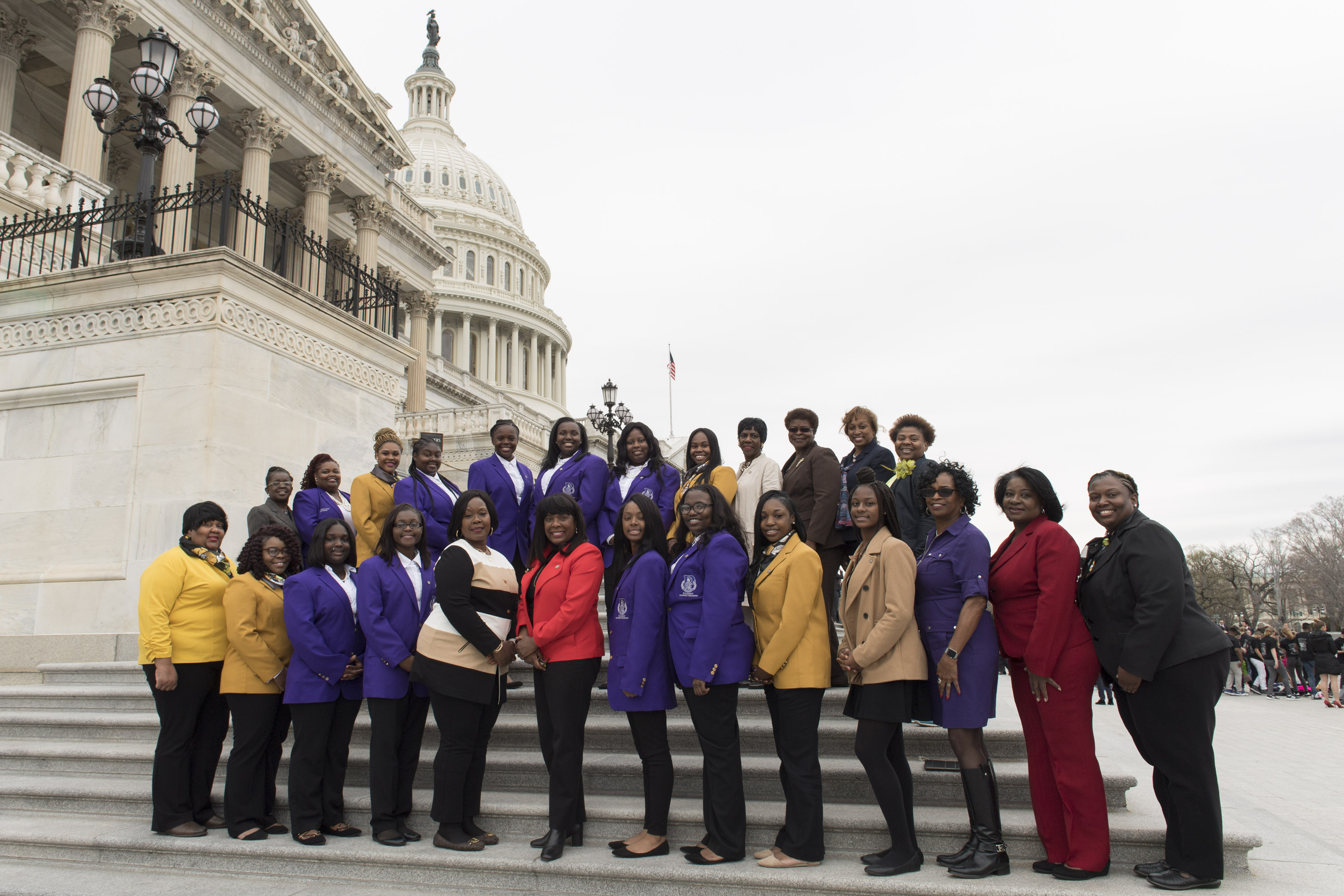By Monique Jones
The Birmingham Times

Members of the Birmingham City Council traveled to Washington D.C. to lobby against proposed cuts to the federal budget.
Area city high school students also made the trip to make a case against the cuts. They got a chance to meet with U.S. Congresswoman Terri Sewell [D-AL].
President Trump’s proposed budget, which will gut over $6 billion in funding to the Department of Housing and Urban Development, would eliminate funding to the Community Development Block Grant (CDBG) program, which houses services for the elderly, low-income families and communities, and veterans. The current funding for the CDBG program is $3 billion.
Councilor Sheila Tyson took 12 Birmingham students to the Sixth Annual Black Women’s Roundtable (BWR) 2017 Summit, held March 29 through April 2. The students, who attend Parker High School and Wenonah High School, learned about how national politics impacts their lives locally. Using the proposed budget cuts as a starting point, the students were asked to lobby for an issue related to the budget they were most passionate about.
“They all go to inner-city schools. They all stay in low-income communities,” said Tyson. “The budget impacted every last one of those girls.”
Tyson said the students had the opportunity to speak with both Democrats and Republicans about the cuts.
“…[T]hey could feel [the passion] through the Democrats because they were passionate about the same thing,” said Tyson, adding that the students had the opportunity to lobby U.S. Senators Luther Strange and Richard Shelby [R-AL]. “[T]hey said that they would keep it in consideration and they would look at everything that the girls had to talk about,” she said.
Tyson said that the trip has positively impacted the students, particularly their meeting with Sewell, who took a photo with Tyson and the students and provided them with a lapel pin and swag bags.
“She actually had a chance to speak with them and she heard their concerns also,” she said. “All of the passionate things that they were discussing, she was passionate about also.”
Two of the students, Nariah Mayo and Tamika Green, wrote notes to Tyson about how their experience has influenced them.
“…I was able to meet some of the most influential women in the U.S. who opened my eyes and…[I] realize I may be young but I can still make a change,” wrote Green.
“…On this trip I’ve learned to never give up and always strive to be the best I can be,” wrote Mayo.
Between March 28 and March 30, Council President Pro Tem Steven Hoyt attended the National Community Reinvestment Coalition (NCRC) Annual Conference to lobby against the CDBG cuts, which would affect programs that impact the lives of senior citizens such as Meals on Wheels.
Hoyt and leaders strategized an economic framework plan to create affordable housing and job development opportunities as well as positively impact the lives of working class families. The conference came after a recent Five Points West Community-Framework Implementation Planning meeting, during which community leaders worked to develop community and economic development strategies as well as address environmental and blight issues.
Hoyt said he was motivated to advocate for citizens on a national level.
“We have an opportunity to impact change by working with other local, state and federal policy makers across the country and learn about the concerns that are at the forefront of community efforts,” Hoyt said. “Through organized efforts of coalitions, such as the NCRC and the BWR that help us prepare tactics towards solutions, we can then structure local policies to defend the causes and concerns of our citizens.”




